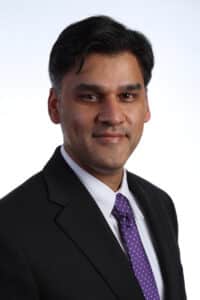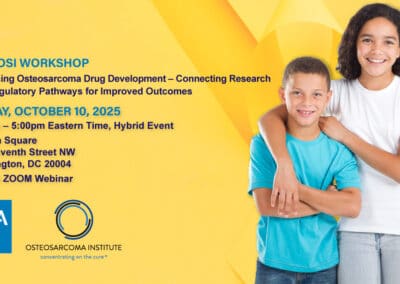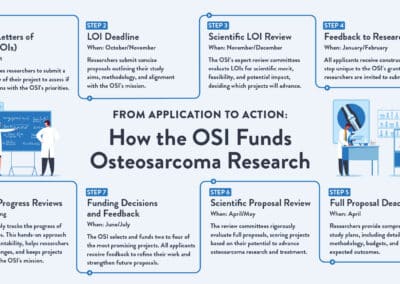This year, the Osteosarcoma Institute (OSI) awarded $1.1 million in osteosarcoma research funding to three groundbreaking projects during its 2023–2024 grant cycle. After an extensive review process, the OSI’s committee of experts selected two translational studies and one high-risk/high-impact study.
Understanding Translational vs. High-Risk/High-Impact Cancer Research
Beginning in 2019, the OSI began awarding cancer research grants in three categories: translational research, clinical trials, and correlative science.
This year, under the guidance of Lee Helman, MD, an osteosarcoma expert who has been studying the biology and caring for pediatric patients with sarcomas for over thirty years, the OSI added a new, fourth category: high-risk/high-impact research.
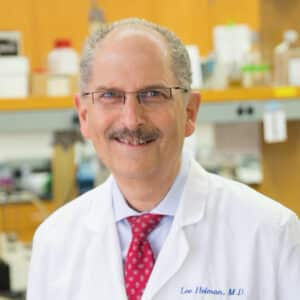
Lee Helman, MD, Institute Director
“Current therapy for patients with osteosarcoma has not improved over the past 40 years. I believe that with our improved understanding of the genetic drivers of this disease, we have an unprecedented opportunity to make significant progress in treating patients using this information,” Dr. Helman says. “I also believe we have the opportunity to engage the immune system to help us develop new approaches for treatment. And I believe the OSI can help accelerate our progress in making this a reality.”
